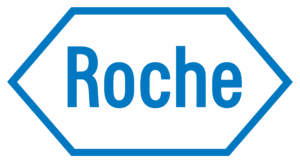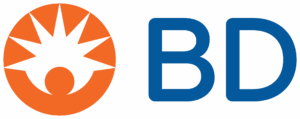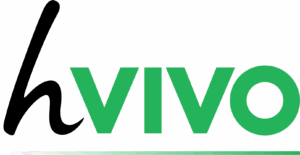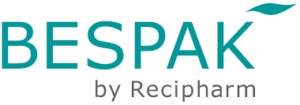The European healthcare industry is one of the continent’s largest and most strategically important sectors, valued at over €2 trillion annually and employing more than 15 million professionals. It encompasses a wide range of services and products — from hospitals and clinical care to pharmaceuticals, medical devices, and personal wellbeing.
Driven by ageing populations, technological innovation, and rising demand for preventative and personalised care, Europe’s healthcare market continues to expand and diversify. However, it remains complex — governed by national health systems, strict regulations, and high expectations for safety, ethics, and sustainability. For companies aiming to enter or grow within the European or Global healthcare market, success requires a deep understanding of local systems, procurement processes, and patient priorities.
Market Size and Growth Potential
Europe’s healthcare landscape is both advanced and fragmented. Each country maintains its own combination of public and private healthcare provision, yet all share common goals of efficiency, innovation, and accessibility.
The EU Health Programme, Horizon Europe, and European Health Data Space (EHDS) are driving digitalisation, data sharing, and cross-border collaboration. At the same time, post-pandemic investment has accelerated the adoption of telehealth, home-based care, and integrated medical supply chains.
As healthcare evolves toward value-based models and patient-centric delivery, opportunities are emerging for innovative suppliers, service providers, and digital health solutions that can meet Europe’s growing healthcare and wellbeing demands.
Key Healthcare Sub-Industries (where 2Europe have experience)
Hospitals & Primary Care
Europe’s network of hospitals, clinics, and primary care providers forms the backbone of its healthcare system. Demand continues to grow due to ageing populations and chronic disease management. Hospitals are investing in digital infrastructure, electronic health records (EHRs), and AI-powered diagnostics to improve efficiency and patient outcomes. For suppliers, procurement processes are highly regulated and competitive, requiring adherence to national health service frameworks and public tender procedures.
Medication Preparation
The medication preparation sector — including compounding, dispensing, and pharmaceutical packaging — is increasingly automated and technology-driven. Safety, traceability, and efficiency are critical. Innovations such as robotic compounding systems, closed transfer devices (CTDs), and dose accuracy monitoring are helping reduce waste and improve patient safety. Companies entering this space must comply with stringent EU directives on Good Manufacturing Practice (GMP) and medicinal product handling.
Infusion & Injection
The infusion and injection market continues to grow due to advancements in biologics, oncology, and chronic disease treatments. Demand is strong for safety-engineered devices, needle-free delivery, and wearable infusion pumps. Europe’s focus on infection prevention and standardised safety practices drives demand for innovative, compliant products. Manufacturers must meet EU Medical Device Regulation (MDR) requirements and prioritise ergonomics, usability, and sustainability in product design.
Wound Care
The wound care market is expanding across both hospital and home-care settings, particularly for an ageing population and patients with diabetes or vascular conditions. Growth is led by advanced wound dressings, negative pressure therapy, and antimicrobial solutions. Sustainability and material innovation — such as bio-based films and recyclable packaging — are becoming key purchasing factors. New entrants must navigate rigorous clinical validation and reimbursement pathways across multiple markets.
Elderly & Personal Care
Europe’s elderly and personal care sector is growing rapidly as populations age and healthcare systems encourage home-based care. Demand is increasing for mobility aids, incontinence products, telemonitoring, and personal safety devices. Integration with digital health platforms allows remote monitoring and data sharing between patients and care providers. Success in this market depends on regulatory compliance, cultural sensitivity, and distribution partnerships across public and private care channels.
Infection Control
Infection prevention and control remain top priorities for European healthcare providers. Hospitals and clinics invest heavily in sterilisation systems, disinfection products, and personal protective equipment (PPE). Post-pandemic awareness has accelerated adoption of UV sterilisation, antimicrobial coatings, and touchless hygiene systems. Manufacturers face strict regulatory oversight under Biocidal Products Regulation (BPR) and MDR, alongside growing sustainability expectations in packaging and waste management.
Physician & Patient Safety
Safety standards underpin every aspect of European healthcare. Products and systems that protect clinicians, patients, and laboratory staff — including sharps disposal units, ergonomic instruments, and protective barriers — are increasingly integrated with digital monitoring and training tools. Hospitals and authorities prioritise suppliers with proven safety records, sustainability credentials, and transparent traceability.
Vitamins & Supplements
The European vitamins, minerals, and supplements market has expanded significantly, supported by rising consumer focus on immunity, mental wellbeing, and preventative health. Demand for natural, plant-based, and personalised nutrition products continues to grow. Compliance with EU Food Supplements Directive and national health claims regulations is essential for market entry. Innovation is strong in functional foods, probiotics, and nutraceutical delivery systems.
Emerging and Fast-Growing Sub-Industries
Digital Health & Telemedicine
Europe is embracing telemedicine, remote diagnostics, and digital patient platforms, improving access to healthcare in both urban and rural areas. The rollout of e-prescriptions, AI diagnostics, and teleconsultation platforms presents major opportunities for healthtech providers.
Biotechnology & Personalised Medicine
Advances in genomics and molecular diagnostics are enabling personalised medicine and targeted therapies. Europe’s biotech sector — especially in Germany, France, and Scandinavia — continues to attract strong investment in cell and gene therapies.
AI & Data Analytics in Healthcare
Artificial intelligence is revolutionising healthcare through predictive analytics, imaging diagnostics, and clinical decision support systems. AI-driven tools improve patient outcomes and optimise hospital resource management but must comply with new EU AI Act regulations to ensure safety and ethics.
Wearables & Remote Monitoring
The adoption of wearable medical devices — from fitness trackers to clinical-grade monitors — is transforming preventative care. Data integration with healthcare providers supports chronic disease management and personalised treatment planning.
Home-Based & Preventative Care
Post-pandemic healthcare trends have accelerated the shift toward home diagnostics, telemonitoring, and portable treatment devices. The growth of smart medical kits and home testing aligns with consumer preference for autonomy and convenience.
Sustainable Healthcare Solutions
Sustainability is increasingly embedded in healthcare procurement. Hospitals are reducing single-use plastics, optimising energy consumption, and investing in recyclable materials. Suppliers offering eco-friendly medical packaging, low-carbon logistics, or waste reduction solutions gain competitive advantage.
Market Entry Challenges
While Europe’s healthcare market offers significant opportunity, it also presents complex challenges:
- Regulatory stringency: MDR, GDPR, GMP, and national healthcare approvals require extensive compliance.
- Procurement complexity: Hospital tenders and reimbursement systems vary across markets.
- Data privacy: Health data protection under GDPR limits digital health scalability.
- Fragmented systems: Public and private healthcare structures differ widely across Europe.
- Cultural variation: Patient attitudes and care models differ by country and demographic.
Supporting you with Expert Research
The European healthcare industry stands at the crossroads of medical innovation and social responsibility. From hospitals and medication preparation to personal care, infection control, and supplements, the sector offers vast opportunities for companies that can balance innovation with compliance and patient trust.
At 2Europe, we deliver specialist healthcare market research to help organisations navigate complex healthcare systems, assess customer and patient needs, and identify growth opportunities across Europe’s diverse health markets. Whether your focus is clinical safety, medical devices, elderly care, or digital health innovation, 2Europe provides the insight and evidence you need to succeed in this highly regulated and rapidly evolving sector.
Clients we have supported in this industry sector:
- Essity
- BD
- Solventum (formerly 3M Health Care)
- Molnlycke Healthcare
- Bespak
- Medicareplus International








